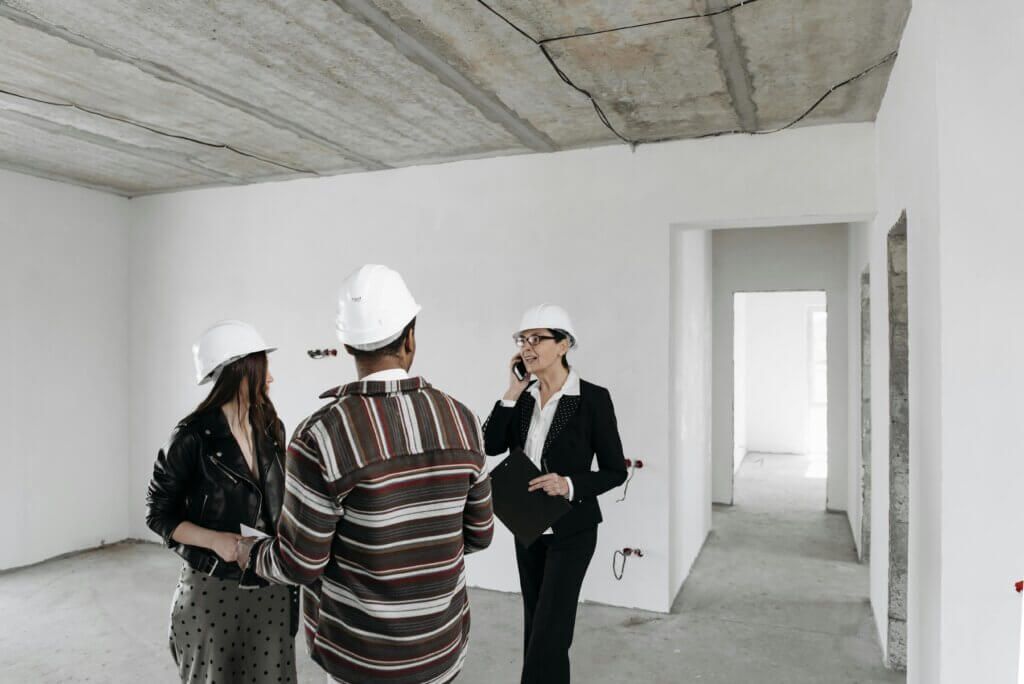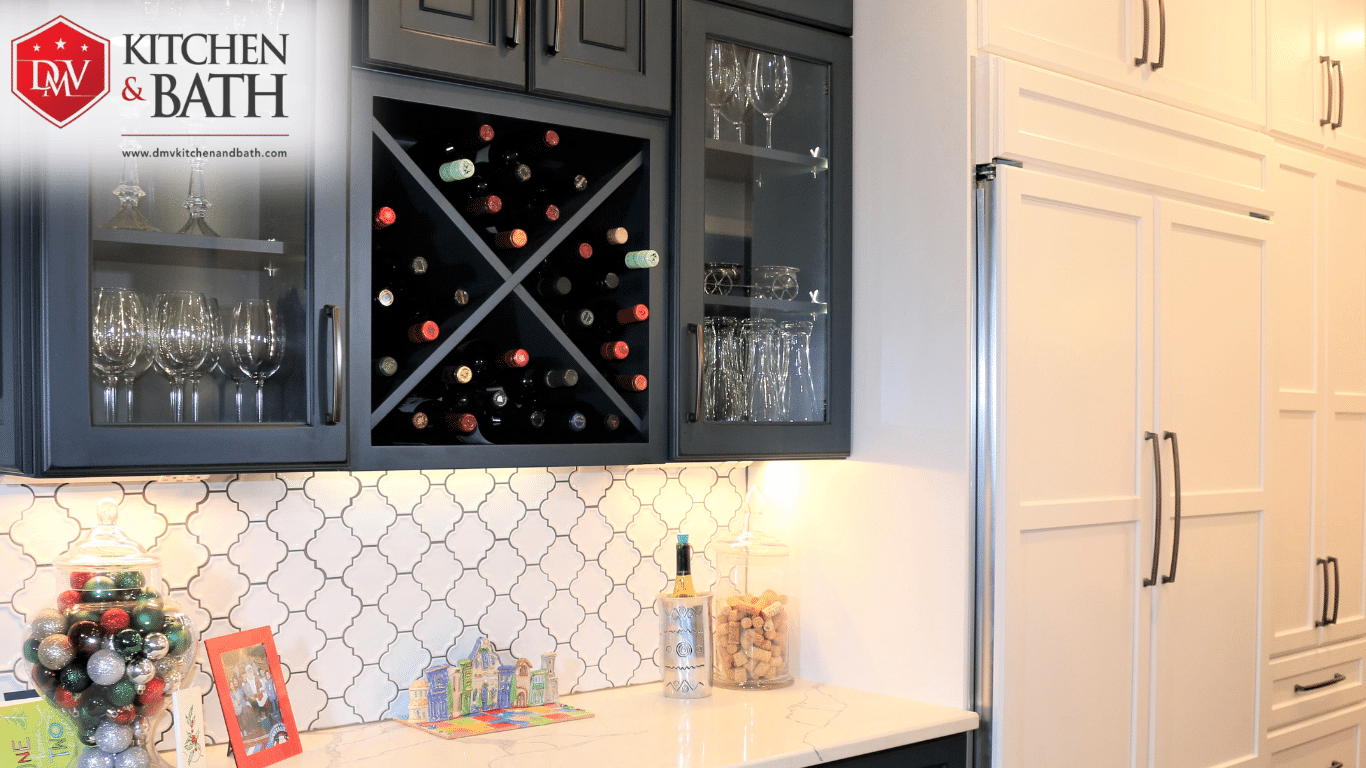
How to Choose the Perfect Bathroom Remodeling Contractor19 min read
So, you’re thinking about giving your bathroom a much-needed facelift? Whether you’re dreaming of a sleek, modern spa-like retreat or a charming, vintage-inspired haven, one thing’s for sure: a successful bathroom remodel can transform your home and enhance your daily life. But, as anyone who’s tackled a home renovation knows, the journey from inspiration to reality is rarely a straight path. That’s where the magic of a great contractor comes into play.
Finding the right contractor can make or break your remodeling experience. They’ll bring your vision to life and navigate the complex maze of permits, plumbing, and design decisions that come with it. But with so many options, how do you choose the perfect partner for your project?
Contents
How to Choose the Perfect Bathroom Remodeling Contractor
Let’s start with the basics. A great contractor isn’t just someone with a toolbelt and a truck; they’re professionals with the expertise, experience, and communication skills necessary to turn your dream bathroom into reality. The right contractor will listen to your ideas, respect your budget, and guide you through each step of the process with transparency and confidence.
Before you dive into the search, it’s important to have a clear understanding of what you want to achieve with your remodel. Are you looking for a complete overhaul, or do you just want to update a few key features? Knowing your goals will help you communicate effectively with potential contractors and ensure you’re both on the same page.
Start with Research: Choosing Your Bathroom Remodeling Contractor
This phase, often overlooked in the eagerness to get started, is vital for ensuring your project runs smoothly and meets your expectations. The foundation of a successful remodel lies in thorough research, which can transform what seems like a daunting task into a manageable process. Here’s how to start.
Seek Recommendations
Begin by reaching out to friends, family, neighbors, and colleagues who have recently completed bathroom remodels. Personal recommendations are invaluable because they come from trusted sources who can provide honest feedback about their experiences. Ask about the quality of work, reliability, and overall satisfaction with the contractors they used.
Additionally, ‘Architectural Digest‘ can be a great source for gathering inspiring ideas for bathroom decor and renovation.
Explore Online Reviews
In addition to personal recommendations, online reviews can offer a broader perspective. Websites like Yelp, Angie’s List, Houzz, and the Better Business Bureau are excellent places to read reviews from other homeowners. Look for contractors with a high number of positive reviews and pay attention to any recurring themes, both positive and negative.
Check Professional Associations
Membership in professional associations like the National Association of the Remodeling Industry (NARI) or the National Kitchen and Bath Association (NKBA) can be a good indicator of a contractor’s commitment to quality and professionalism. These organizations often have directories of members who adhere to industry standards and ethical practices.
Review Portfolios
Most reputable contractors will have a portfolio of their work available online. Spend some time browsing through photos of completed projects to get a sense of their style and capabilities. Look for projects similar to what you envision for your bathroom to see if their work aligns with your taste and expectations. Additionally, review completed bathroom renovation projects to find inspiration and ensure they meet your needs and preferences.
Visit Showrooms and Home Shows
If you have the opportunity, visit local showrooms or home improvement shows. These venues can inspire and allow you to see and feel materials for bathroom floors and other fixtures up close. Additionally, you might meet contractors in person, giving you a chance to ask questions and gauge their expertise and professionalism.
Use Social Media
Social media platforms like Instagram and Pinterest are treasure troves of remodeling inspiration and can also help you find contractors. Many professionals showcase their work on these platforms, providing a visual portfolio and sometimes even behind-the-scenes looks at their projects. Follow local contractors and join home improvement groups to see recommendations and reviews from other homeowners.
Local Community Boards and Forums
Local online community boards, such as those found on Nextdoor or neighborhood Facebook groups, can be great resources for finding contractor recommendations. These platforms allow you to connect with neighbors who have firsthand experience with local contractors.
Compile a Shortlist
After gathering recommendations, reading reviews, and checking credentials, compile a shortlist of contractors who seem to meet your criteria. Aim for at least three to five potential contractors to ensure you have options to compare.
Verify Credentials
Once you’ve compiled a shortlist of potential bathroom remodeling contractors through recommendations and research, the next critical step is to verify their credentials. This ensures that the contractors you’re considering are qualified, reliable, and professional.
Check Licensing
Every state and municipality has different licensing requirements for contractors. Ensuring your contractor has the necessary licenses confirms they have met the minimum qualifications and are legally permitted to perform remodeling work in your area.
Here’s how to check their licensing:
- State Licensing Board: Visit your state or local licensing authority’s website to verify the contractor’s license. Most sites have searchable databases where you can look up contractors by name or license number.
- Request Documentation: Ask the contractor to provide their license number and any relevant documentation. A reputable contractor will have no problem sharing this information.
Confirm Insurance Coverage
Insurance is crucial for protecting both you and the contractor in case of accidents, damages, or injuries during the project. Ensure the contractor carries both general liability insurance and workers’ compensation insurance:
- General Liability Insurance: This covers any damages to your property that occur as a result of the contractor’s work.
- Workers’ Compensation Insurance: This protects you from liability if a worker is injured while on your property.
- Request Proof: Ask the contractor to provide a certificate of insurance. Contact the insurance company directly to verify that the policy is current and covers the scope of your project.
Look for Certifications
Certifications from professional associations can be a sign of a contractor’s commitment to their trade and continuing education. Look for certifications from reputable organizations such as:
- National Association of the Remodeling Industry (NARI)
- National Kitchen and Bath Association (NKBA)
- Certified Remodeler (CR)
- Certified Kitchen and Bath Remodeler (CKBR)
These certifications often require contractors to meet specific standards and complete ongoing education.
Check for Complaints and Legal Issues
It’s essential to know if the contractor has a history of complaints or legal issues:
- Better Business Bureau (BBB): Check the contractor’s rating and read any complaints or reviews filed against them.
- State Attorney General’s Office: Look up the contractor to see if there are any unresolved complaints or legal actions.
- Court Records: Search local court records to see if the contractor has been involved in any lawsuits related to their work.
Verify Work History and Experience
A contractor’s work history and experience can provide insight into their reliability and quality of work:
- Past Projects: Ask for a portfolio of past projects, particularly those similar to your bathroom remodel. Additionally, inquire about their bath remodel projects to see a variety of sink designs and overall planning.
- References: Request a list of references from recent clients. Contact these references to ask about their experiences, focusing on the quality of work, adherence to timelines, and how the contractor handled any issues.
Confirm Membership in Professional Organizations
Membership in professional organizations indicates that a contractor stays updated with industry trends and standards. Ask if the contractor belongs to any organizations such as NARI or NKBA and verify their membership through the organization’s website.
Interview Multiple Contractors for Professional Help
Narrow down your list and set up interviews with at least three contractors. Prepare a list of questions to gauge their experience, approach, and reliability. Key questions to ask include:
- How many years have you been in business?
- Can you provide references from recent projects?
- What is your estimated timeline for this project?
- How do you handle unexpected issues or changes?
Check References and Past Work
A reputable contractor will gladly provide references. Contact these past clients to inquire about their experiences. Visit completed projects, if possible, to see the quality of work firsthand. This step will give you confidence in the contractor’s ability to deliver on your vision.
Get Detailed Estimates
Request detailed estimates from each contractor. These should include a breakdown of labor, materials, and any additional costs. Be wary of estimates that seem too good to be true—they often are. A comprehensive, realistic estimate is a sign of a trustworthy contractor.
Interview Multiple Contractors
After researching and verifying the credentials of potential bathroom remodeling contractors, the next step is to interview them. This is your chance to ask detailed questions, assess their professionalism, and determine if they are a good fit for your project.
Prepare Your Questions
Before the interviews, prepare a list of questions to ensure you cover all important aspects of the project. Some key questions to consider include:
Experience and Expertise
- How long have you been in the remodeling business?
- Do you specialize in bathroom remodels?
- Can you provide examples of similar projects you’ve completed?
- Do you have experience with full remodel projects?
Project Management
- Who will be managing the project on a day-to-day basis?
- Will you be hiring subcontractors? If so, how long have you worked with them?
- How do you handle scheduling and ensure the project stays on track?
- How do you handle material selection and ensure quality?
Budget and Payments
- Can you provide a detailed estimate? What is included in the estimate?
- What is your payment schedule?
- How do you handle cost overruns and unexpected expenses?
- How do you manage the budget for such a big project?
Timeline
- What is your estimated timeline for completing the project?
- How do you manage delays or unforeseen issues?
- Are you currently working on other projects that might affect this timeline?
- What is the expected timeline for specific elements like installing an in-shower?
Communication
- How often will we have progress meetings or updates?
- What is the best way to reach you during the project?
- How do you handle disagreements or disputes?
- How do you ensure effective communication and professional help throughout the project?
References and Past Work
- Can you provide references from recent clients?
- Are there any projects you are currently working on that I can visit?
- Can I see a portfolio of your completed work?
Check References and Past Work
Checking references and reviewing a contractor’s past work is a critical step in ensuring you hire the right professional for your bathroom remodeling project. Here’s a detailed guide on how to effectively check references and evaluate past work:
Request References
Ask each contractor you’re considering to provide references from recent clients. A reputable contractor should be willing and able to provide several references who can speak to their workmanship, reliability, and professionalism. Additionally, ask for references from clients who had double vanity installations to ensure the contractor has experience with this specific type of project.
Contact References
Once you receive the references, take the time to contact each one. Prepare a list of questions to ask that will help you gather relevant information about the contractor’s performance. Here are some questions you might consider asking:
- How satisfied were you with the overall quality of the work?
- Did the contractor adhere to the agreed-upon schedule and budget?
- Were there any unexpected issues or challenges, and how were they handled?
- How was the contractor’s communication throughout the project?
- Would you hire this contractor again for future projects?
Visit Completed Projects
If possible, ask the contractor if you can visit one or more of their completed projects. Seeing the work firsthand will give you a clear idea of the contractor’s craftsmanship and attention to detail. Pay attention to:
- The overall finish and quality of workmanship.
- The functionality and durability of materials used.
- How well does the project align with your expectations and preferences?
- Bathtub installations, including types like freestanding and marble tubs, and considerations for replacing a bathtub with a shower to optimize space.
Review Online Portfolios
In addition to visiting projects in person, review the contractor’s online portfolio or website. Many contractors showcase their best work online, providing photos and descriptions of completed projects. This can give you a broader view of their capabilities and style.
Check Online Reviews
While you’ve likely already reviewed online reviews during your initial research phase, it’s a good idea to revisit them after speaking with references and reviewing past work. Look for any recurring themes or concerns mentioned by multiple clients. Keep in mind that a few negative reviews among many positive ones may not necessarily indicate a problem, but pay attention to how the contractor responds to feedback.
Get Detailed Estimates
Obtaining detailed estimates from potential bathroom remodeling contractors is essential for understanding the scope of work, the costs involved, and what to expect throughout the project.
Request Detailed Proposals
Reach out to each contractor on your shortlist and request a detailed proposal for your bathroom remodeling project. A comprehensive proposal should include:
- Scope of Work: A detailed description of the work to be done, including demolition, construction, plumbing, electrical work, and any other specific tasks.
- Materials and Fixtures: Specifications for materials, fixtures, and finishes, including brand names and models if applicable.
- Timeline: An estimated timeline for each project phase, from start to completion.
- Labor Costs: Breakdown of labor costs, including hourly rates or project-based fees for each type of work.
- Additional Costs: Any additional costs such as permits, disposal fees, or unexpected contingencies.
Additionally, consider requesting detailed proposals for bath remodel projects to ensure all aspects of your bathroom renovation are covered comprehensively.
Compare Estimates
Once you receive proposals from contractors, carefully compare them to understand the differences in pricing, materials, and scope of work. Pay attention to:
Total Cost
Compare the total cost estimates from each contractor. Ensure that all estimates include similar scopes of work and materials so you can make an accurate comparison.
Breakdown of Costs
Look at the breakdown of costs for materials, labor, and any additional expenses. This will help you understand where the majority of your budget is going and identify any potential cost savings or concerns.
Quality of Materials and Material Selection
Evaluate the quality and brands of materials and fixtures specified in each proposal. Cheaper materials may lower costs initially but could result in higher maintenance or replacement costs in the long run. Additionally, consider comparing estimates for Long Island-specific projects to ensure you are getting the best value for your home decor, remodeling, and contracting needs.
Understand Payment Terms
Review the payment terms outlined in each estimate. Typically, contractors will require an initial deposit or down payment to secure the project, followed by payments at specific milestones or completion of phases. Make sure you understand when payments are due and what they cover.
Clarify Terms and Conditions
Read through the terms and conditions included in each proposal. This section should outline important details such as:
- Warranty Information: What warranties are provided for labor and materials?
- Cancellation Policy: Under what circumstances can either party cancel the contract?
- Change Orders: How are changes to the original scope of work handled? What is the process for approving and pricing change orders?
Ask Questions
If anything in the estimates is unclear or if you have questions about specific items, don’t hesitate to reach out to the contractors for clarification. Clear communication at this stage will help prevent misunderstandings and ensure that both parties are on the same page before the project begins.
Consider Value, Not Just Price
While cost is an important factor, remember that the lowest bid is not always the best choice. Consider the overall value offered by each contractor, including their reputation, experience, quality of work, and customer service. Choosing a contractor based solely on price could lead to compromises in quality or reliability.
Evaluate Communication Skills
Assessing a bathroom remodeling contractor’s communication skills is crucial for ensuring a smooth and successful renovation experience. Effective communication fosters understanding, minimizes misunderstandings, and keeps the project on track.
Initial Contact
Pay attention to how the contractor communicates during your initial contact:
- Response Time: How quickly did they respond to your inquiry or initial contact? Prompt responsiveness is a good indicator of their reliability.
- Clarity and Professionalism: Were their responses clear, professional, and courteous? Clear communication from the outset sets a positive tone for the entire project.
- Experience with DIY Projects: Ask about their experience with DIY projects to gauge their expertise and ability to handle potential issues effectively.
Meetings and Interviews
During face-to-face meetings or virtual interviews, observe how the contractor communicates:
- Active Listening: Does the contractor listen attentively to your ideas, concerns, and preferences? Active listening shows that they value your input and are interested in understanding your vision.
- Ability to Explain: Can they explain technical aspects of the project in a way that is easy to understand? A good communicator can convey complex information clearly and concisely.
- Ask Questions: Do they ask insightful questions to clarify your needs and expectations? Asking relevant questions demonstrates their commitment to understanding your project requirements fully.
Responsiveness
Throughout the hiring process, assess the contractor’s responsiveness:
- Timely Follow-Up: Do they follow up promptly after meetings or discussions? Prompt follow-up indicates their professionalism and commitment to keeping you informed.
- Availability: Are they accessible and responsive to calls, emails, or messages? Accessibility is important for addressing any concerns or questions that may arise during the project.
Transparency
Evaluate how transparent the contractor is about the project details:
- Information Sharing: Do they provide clear and detailed information about the project scope, timeline, costs, and potential challenges? Transparent communication builds trust and ensures that both parties are aligned on expectations.
- Updates and Progress Reports: How do they communicate project updates and progress? Regular updates keep you informed and help you track the project’s milestones.
Problem-Solving Skills
Assess how the contractor handles potential issues or challenges:
- Conflict Resolution: How do they approach disagreements or conflicts? A skilled communicator can navigate challenges diplomatically and find mutually agreeable solutions.
- Adaptability: Are they flexible and open to discussing changes or adjustments to the project? A contractor who is willing to adapt to your needs demonstrates a collaborative approach.
References and Reviews
Reach out to references provided by the contractor to gather feedback on their communication skills:
- Client Feedback: Ask previous clients about their experience with the contractor’s communication throughout the project. Were they satisfied with how information was conveyed and problems were addressed?
- Online Reviews: Review online testimonials and reviews to see if communication is consistently highlighted as a strength or area for improvement.
All Things Considered
Finally, trust your instincts. If something feels off during the selection process, it’s worth considering other options. A strong rapport and mutual trust with your contractor are essential for a successful renovation.
Choosing the right bathroom remodeling contractor is a journey in itself, but with careful planning and due diligence, you can find the perfect partner to bring your dream bathroom to life. Stay tuned as we dive deeper into each step of the process, ensuring you’re fully equipped to make an informed and confident decision.
Take the first step towards transforming your bathroom into a sanctuary.
For a seamless bathroom remodeling experience, trust DMV Kitchen and Bath — where quality meets craftsmanship. Contact us today for a bathroom and kitchen remodeling estimate. Transform your bathroom into the space you’ve always dreamed of with a contractor who cares.














